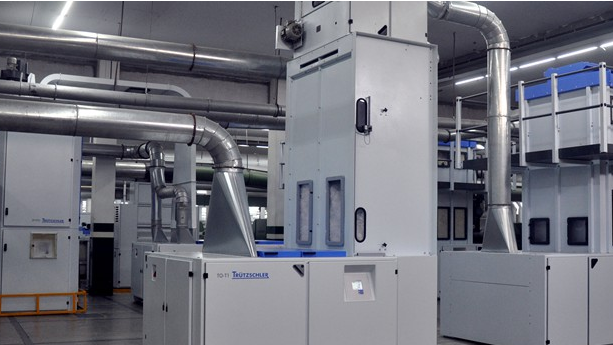The federal government is committed to making the textile industry competitive and realise its true export potential, said Special Assistant to Prime Minister (SAPM) on Petroleum Nadeem Babar.
Talking to the media at All Pakistan Textile Mills Association (Aptma) Punjab office on Saturday, he pointed out that the purpose of his visit to the association was to understand the issues of the textile sector.
He said that the meeting with Aptma’s leadership and members was highly constructive and focused on the issue of Gas Infrastructure Development Cess (GIDC).
“The government will ensure maximum relief to the industry within the ambit of the GIDC verdict announced by the apex court,” he said.
He said that the textile industry was looking for a stable textile policy while the government was committed to introduce it at the earliest to help the industry attract foreign exchange, create jobs and bring investment in the country.
“The government will ensure supply of gas to the industry during the winter season,” Babar assured.
Speaking on the occasion, Aptma Chairman Adil Bashir said that the textile sector had recovered completely due to the export-friendly policies of the current government.
He pointed out that the idle capacity has become operational and the textile exports have started rising over the past two months.
“In addition, exports are projected to grow 14% during the ongoing month of September,” he added.
He highlighted that the association was working with the government for a viable textile policy.
Earlier in his presentation to Babar, Bashir called for determination of realistic energy efficiency benchmarks in consultation with the industry, experts and technical data.
The energy audit should be suspended till re-determination of efficiency benchmarks, he stressed.
He suggested that industries using gas for in-house consumption should be exempted from GIDC charges at captive tariff.
“Since textile industry has not passed on the incidence of GIDC, therefore GIDC arrears should not be recovered from it till the decision by superior courts are announced,” he stressed.
Adil lamented that the Sui Northern Gas Pipelines Limited (SNGPL) had issued GIDC arrears bills at captive connection tariff without determining passing of incidence.
“The Lahore High Court vide order dated September 14, 2020 has ordered stay on recovery of arrears prior to 2015 and the difference of industrial and captive tariff,” he added.
Highlighting that the textile sector had not passed on GIDC to consumers, he said that the Supreme Court’s decision was not applicable on textile sector.
The recovery of GIDC arrears may be suspended till final outcome of the review petition.
The official demanded the government to fix all-inclusive energy tariffs ie electricity at 7.5 cents per kWh and gas at $6.5 per mmbtu for the next five years.
He further recommended that a billing mechanism should be devised for disbursement of subsidy to SNGPL for providing gas to the five export-oriented sectors at $6.5 per mmbtu.
Subsidy for all the surcharges and costs above $6.5 per mmbtu from October 2018 to July 2020 should be released to SNGPL, Bashir suggested.
He has also urged Babar to allot zero rating to new electricity and gas connections of the industry, which were not previously listed as zero rated.
“In October 2018, the government had announced an all-inclusive energy package for the five export-oriented sectors under which electricity was charged at 7.5 cents per kWh and gas at $6.5 per mmbtu,” he said. “This package enabled the industry of Punjab to compete with domestic and regional competitors.”
We buy and sell textile machinery

Leave a Reply
You must be logged in to post a comment.